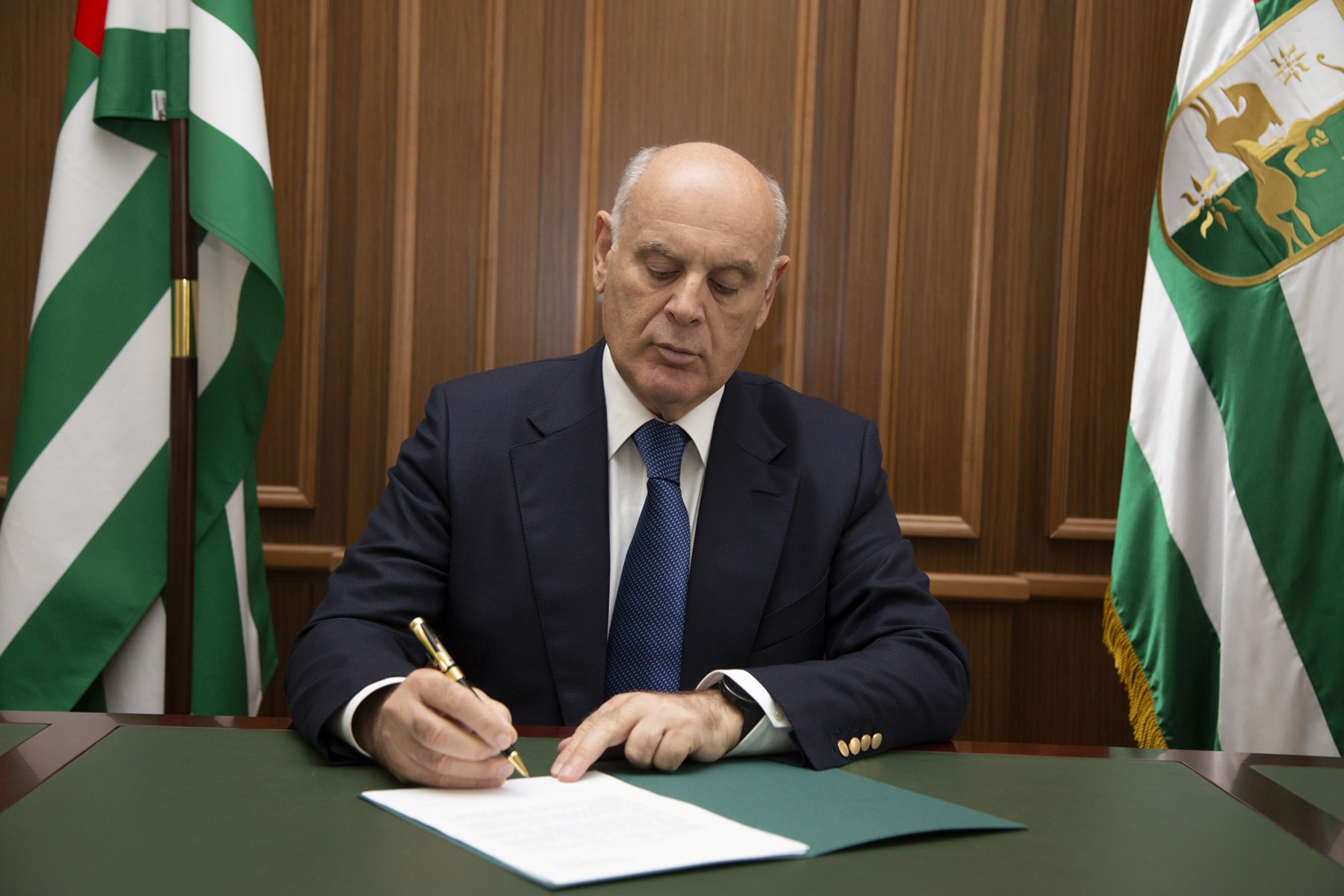
Abkhazia’s president has tightened restrictions on international organisations after the authorities criticised USAID for making anti-Russia sentiments.
In a decree on Monday, President Aslan Bzhaniya amended a previous presidential decree on the implementation of projects by international organisations in Abkhazia. The amendment would oblige international organisations operating in Abkhazia to fully disclose their budgets and expenses.
Additionally, international organisations must disclose the names of local partner organisations that are expected to participate in their projects.
The government will also require that international organisations submit project proposals to the Ministry of Foreign Affairs for approval.
The decree was first hinted at last week when Foreign Minister Inal Ardzinba accused international organisations of a lack of transparency with their budgets, expenses, and programmes.
Ardzinba accused USAID of spreading anti-Russian sentiments through its ‘countering malign Kremlin influence framework’, and of seeking to ‘restore Georgia’s territorial integrity’.
USAID launched the framework in 2019 to respond to what it said was Russia’s ‘open assault on democracies and market economies and to safeguard the development gains that our partners have worked so hard to achieve’.
The USAID mission in Georgia told OC Media on Wednesday that it implemented its programming in Abkhazia in partnership with UN Agencies.
The agency added that it was ‘closely monitoring’ the situation in Abkhazia and that it was ‘deeply concerned’ about how the decree might affect organisations working in Abkhazia.
The authorities in Sukhumi (Sukhum) have long had a contentious relationship with international organisations, having previously threatened to shut down EU and UN projects operating in Abkhazia.
Liana Kvarchelia, a board member at the Centre for Humanitarian Programmes, a local civil society organisation, said that while USAID was biased, the government should invite representatives of the agency to discuss potential avenues of cooperation.
‘If we want to be heard, if we want to influence international organisations to change their approaches, we ourselves must be open and interested in cooperation’, said Kvarchelia.
‘Our leadership needs to invite them and tell them that we are ready to work, but that they should not impose such a political framework on us. I think there is a chance that we will be heard.’
For ease of reading, we choose not to use qualifiers such as ‘de facto’, ‘unrecognised’, or ‘partially recognised’ when discussing institutions or political positions within Abkhazia, Nagorno-Karabakh, and South Ossetia. This does not imply a position on their status.









